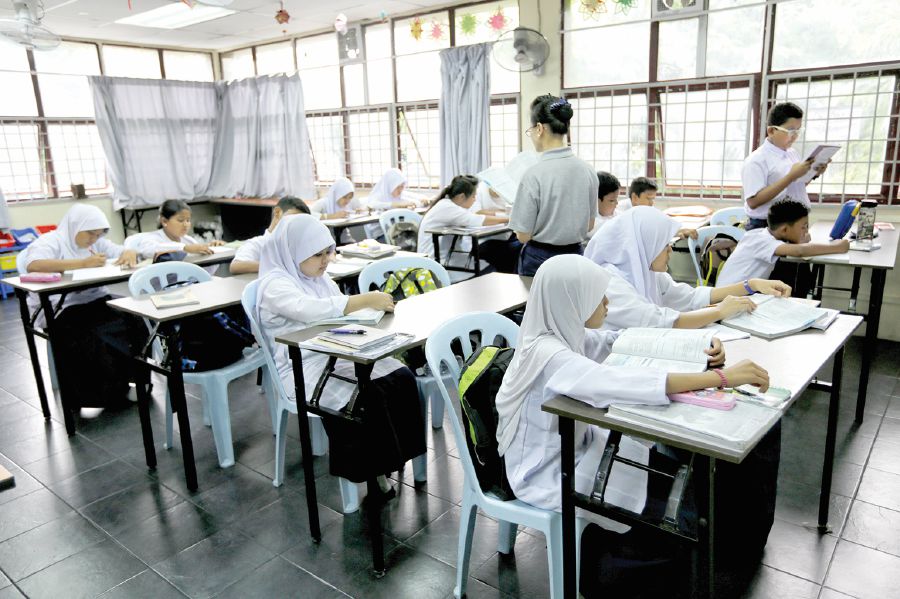MALAYSIA hosts some 170,000 refugees and asylum seekers, 44,880 of them below the age of 18.
Despite a policy preventing migrant workers bringing their children or having families in Malaysia, children of migrant workers also live here as evidenced by a recent programme to regularise undocumented workers and their families in Sabah.
In practically all of these cases, children from already vulnerable groups are unable to access formal education due to their non-residency status and are forced to seek education from informal alternative systems.
Education is a fundamental right and foundation of human dignity. The lack of educational opportunities places significant future burdens on these children, with many of those unable to access education facing a vicious cycle of poverty, vulnerability and marginalisation.
Some argue that providing education to undocumented children may take up spaces meant for Malaysians, depriving Malaysian children of an education. This manifests in stringent requirements on documentation for children to access school. The Education Act 1996 (2002 amendment) imposed stringent duties on parents to prove their children are Malaysian citizens or legally residing in Malaysia.
Such requirements implemented to exclude undocumented children are not only cumbersome, they sometimes also deny education to legitimate Malaysian children who may lack the necessary documents. The requirement to produce birth certificates to enrol in national schools especially impacts marginalised and remote communities with poor access to birth registration. A mobile registration programme, such as that in 2011 for Indian communities in plantations, goes some way to help children disadvantaged by geographical and resource constraints.
Others argue that due to a limited budget, an expectation to provide free education for undocumented children might affect education quality and delivery. The short- and long-term evidence indicates to the contrary.
Malaysia stands out among its peers in prioritising education, consistently allocating one-fifth of its budget to education. This has seen Malaysia make great strides, achieving universal primary education, high secondary enrolment rates and a highly-educated workforce.
Providing education to children with documentation issues is well within reach. The Education Ministry data show 4,735,116 students enrolled at pre-school, primary and secondary levels in 2018. United Nations High Commissioner for Refugees’ (UNHCR) statistics show 44,880 refugees and asylum-seekers below the age of 18 in 2019.
There are approximately 12,000 children of Indonesian migrant workers registered in Indonesian Consulate-run Community Learning Centres in Sabah in 2018.
While the actual number of children without documents could be marginally higher, the combined 56,880 children of these two groups represents barely 1.2 per cent of the 4,735,116 students currently enrolled in national schools.
Providing these children with formal education would not create a significant drain on the country’s resources; indeed, education access would keep these children learning in schools and contributing positively to Malaysian society, prevent them from engaging in questionable activities, and help ensure that they can achieve their full potential in life.
Readiness towards granting non-residents access to education has been slowed by perceptions that it would “open the floodgates” to migration.
However, as encapsulated by the plight of Palestinian and other refugees, the first and foremost desire of many refugees is the right to return.
Malaysia can draw inspiration from other countries such as Turkey. As a major refugee-hosting country, Turkey is host to one million refugee children of school-going age in 2018, representing approximately five per cent of the approximately 19 million 5-19-year-olds in 2018.
With 640,000 of these one million refugee children already attending formal education, Turkey has committed to include all Syrian refugee children in its public schools, hiring 80,000 additional teachers and actively collaborating with partners to ensure equitable access to quality education.
As a first step, Malaysia can take measures to include certain vulnerable groups of children into the national education system. Investing in education for undocumented children is not a waste of resources; in fact, it can produce significant returns for the country.
Estimates suggest that every US$1 invested in an additional year of schooling for children in low- and middle-income countries generates benefits of US$10 in low-income countries and US$4 in middle-income countries.
Numerous examples of successful migrants contributing to their adopted countries abound, including Steve Jobs (Apple), Hamdi Ulukaya (Chobani), Sadiq Khan (Mayor of London), and Elon Musk (PayPal, Tesla, SpaceX); not to mention examples from Malaysia’s own rich multi-ethnic heritage.
Malaysia aspires to be a developed nation and a leading country in the international arena and should act accordingly to improve equitable access to education; both as a moral obligation and as a practical solution to accelerate Malaysia’s international commitments.
Malaysia is a signatory to the UN Convention on the Rights of the Child (CRC) and is fully committed to the 2030 Sustainable Development Agenda. Despite reservations on Articles 7 and 28(1)(a) of the CRC on the recognition of a child’s right to registration, name, nationality and free primary education, Malaysia must subscribe to the ultimate ideals of these conventions.
The onus is on Malaysia to ensure the right of all children to realise their full potential.





